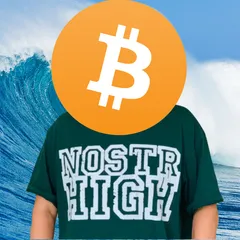
we already at 40% correction below ATH

we already at 40% correction below ATH

should have listened to peter schiff

the ai stock bubble is done

moltbot apocalyptic narratives going brrrrrrr

bitcoin is down more than 15% in the past15 days, from 97k to 81k let that sink in

privacy tools go brrr

privacy tools go brrr

shosho streams

there is no dry powder left only debts and liabilities

yes normally people will keep buying on the way down to DCA

#aqstr #v4v

#aqstr #v4v

#aqstr v4v

presented without comment

let's go keep it meme

looks like it wants to go back to the lower range below 15.6

saving in bitcoin is a scam.. you either trade it and profit from the pump and dump or you are exit liquidity

yeah i think they are missing the anti part... anti fraud law enforcement maybe?

⚡️

gold is at $5000 almost impossible to see it back at $3000 again whereas bitcoin at 120k pretty easily can go back to 30k that's mostly my point

the problem with bitcoin compared to gold or silver as a store of value is that it can erase any profit you have made at any given time or date...
turn right and exit babilonia